
What is A Trust Deed for Establishing a Temple and what are the important points.
In India, a Trust Deed for Establishing a Temple is a legal document that is required when creating a trust for the purpose of managing and maintaining a temple. It is an essential document that lays out the objectives, rights, and responsibilities of the trustees who will be responsible for managing the temple. The Trust Deed for Establishing a Temple is governed by the Indian Trusts Act of 1882, which outlines the legal requirements for creating and managing trusts in India. This act provides a framework for creating a trust, appointing trustees, and administering trust property.
A Trust Deed for Establishing a Temple is a legal document that is required when creating a trust to manage and maintain a temple in India. It outlines the objectives, rights, and responsibilities of the trustees who will be responsible for managing the temple. This document is governed by the Indian Trusts Act of 1882, which provides a legal framework for creating and managing trusts in India.
The Trust Deed for Establishing a Temple typically includes the name and address of the temple, the objectives of the trust, the details of the trustees, the powers and duties of the trustees, the rules and regulations for managing the temple, the provisions for appointing and removing trustees, and the provisions for amending or terminating the trust.
The name and address of the temple should be clearly stated in the Trust Deed, along with a description of the purpose and activities of the temple. The objectives of the trust should be specific and clearly defined, and should include the beneficiaries of the trust. This may include members of a particular community, worshippers of a particular deity, or the general public.
The trustees of the trust should be appointed in accordance with the provisions of the Indian Trusts Act of 1882. They should be named in the Trust Deed, along with their addresses and roles within the trust. The Trust Deed should also outline the powers and duties of the trustees, including their responsibilities for managing the temple, making decisions, and administering the trust property.
The rules and regulations for managing the temple should be clearly defined in the Trust Deed. This should include the procedures for conducting meetings, making decisions, and handling disputes. The Trust Deed should also outline the provisions for appointing new trustees, removing existing trustees, and filling any vacancies that may arise.
The provisions for amending or terminating the trust should also be included in the Trust Deed. This should outline the procedures for making changes to the trust deed and the circumstances under which the trust can be terminated.
It is important to note that a Trust Deed for Establishing a Temple must be registered with the appropriate authorities in India. This ensures that the trust is legally recognized and can operate in compliance with Indian law.
In conclusion, a Trust Deed for Establishing a Temple is an essential legal document that outlines the objectives, rights, and responsibilities of the trustees who will be responsible for managing a temple in India. By following the legal requirements outlined in the Indian Trusts Act of 1882 and registering the trust with the appropriate authorities, trustees can ensure that their trust is legally recognized and can operate in compliance with Indian law.
Contact us for any querry.
Tags
General Legal Hashtags
- #PhenixBayLegal
- #LegalAdviceIndia
- #IndianLawUpdates
- #LegalServicesIndia
- #LegalBlogsIndia
Regional Hashtags (Geographical Coverage)
- #NorthIndiaLegalUpdates
- #SouthIndiaLegalAdvice
- #EastIndiaLawServices
- #WestIndiaLegalResources
- #NortheastIndiaLaw
City-Specific Hashtags
- #DelhiLegalServices
- #MumbaiLawUpdates
- #BangaloreLawAdvice
- #ChennaiLegalHelp
- #KolkataLegalConsultation
- #HyderabadLawyers
- #PuneLegalTips
- #AhmedabadLegalServices
- #LucknowLawConsultation
- #ChandigarhLegalAdvice
Broader Indian Legal System Hashtags
- #IndianLegalSystem
- #IndianCourtUpdates
- #LegalAwarenessIndia
- #LawInIndia
- #LegalRightsIndia
- #LawFirmIndia
- #LegalSupportIndia
- #LegalUpdatesIndia
- #LegalAwarenessCampaign
More >>
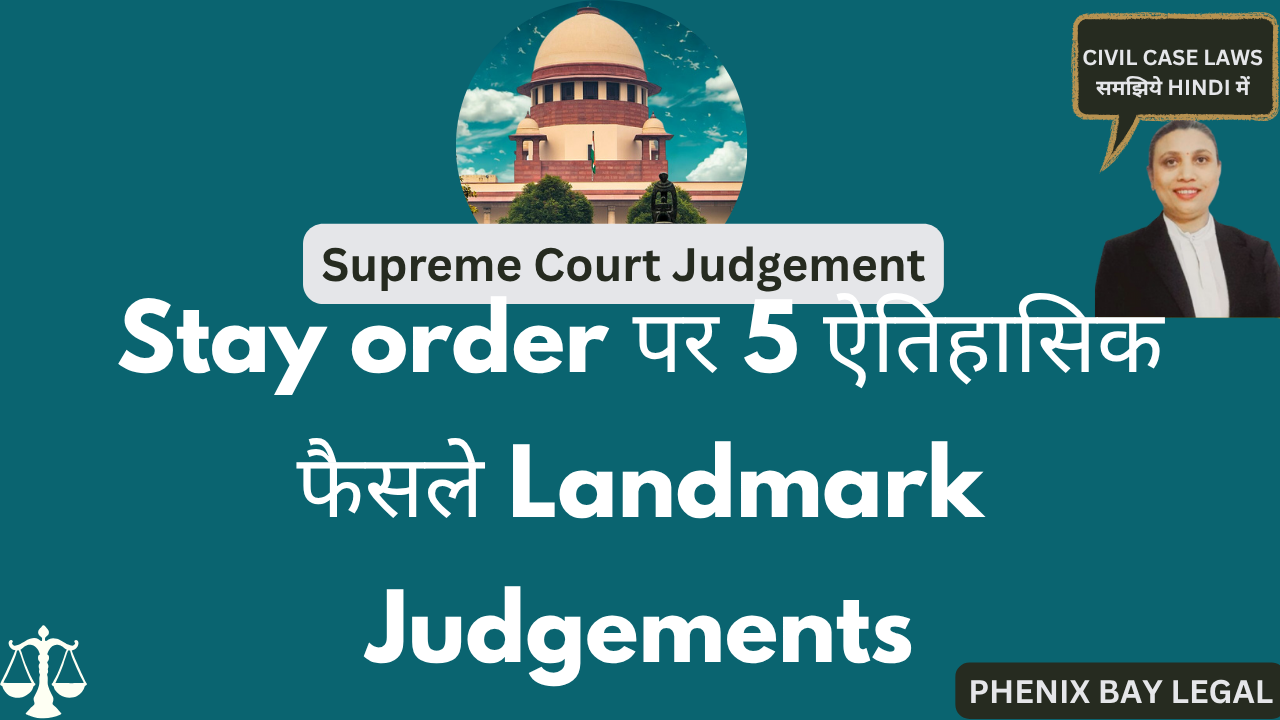
Landmark Judgement on Injunction
In civil, commercial, or even family disputes. But when is a simple injunction suit enough? When do you need to add a declaration of title? And how do courts balance urgency vs evidence in interim relief?
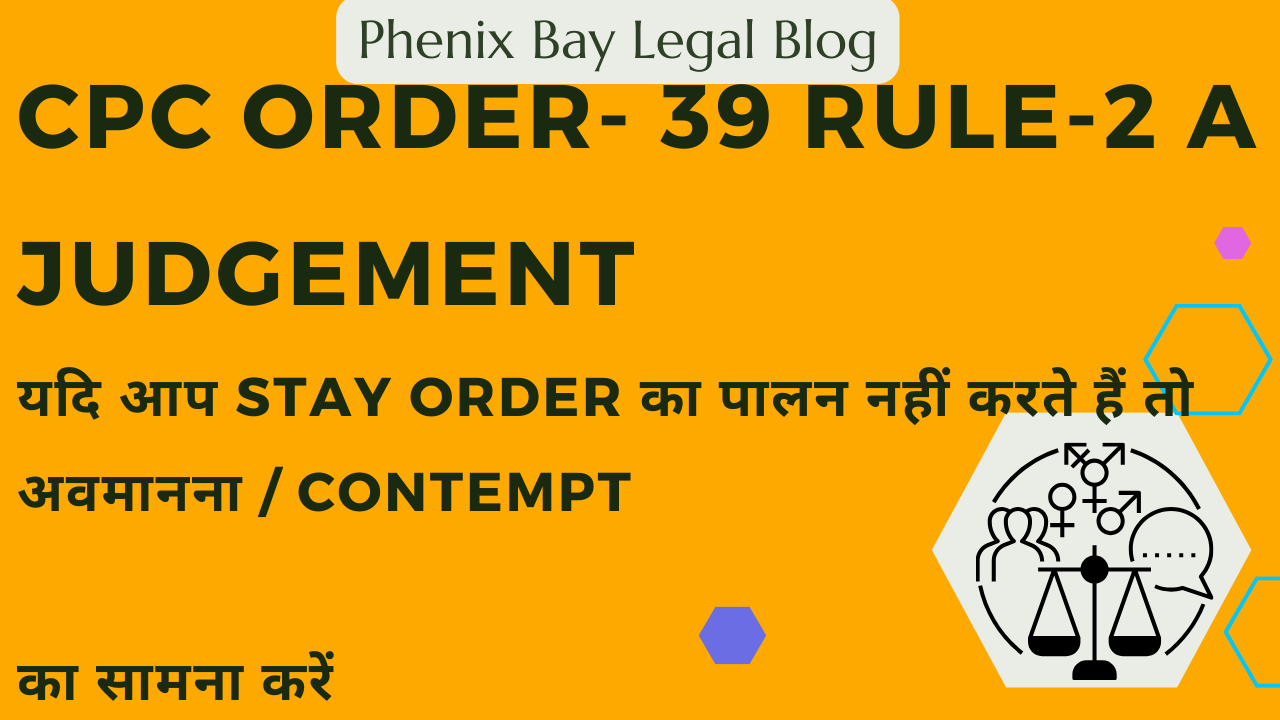
Case Analysis: Stay Order Violation and Contempt of Court by Supreme Court of India
Giving an undertaking to the court is equivalent to an order of injunction—any violation invites contempt proceedings.Injunction orders remain valid until formally vacated by a court—violation before vacation can lead to punishment.
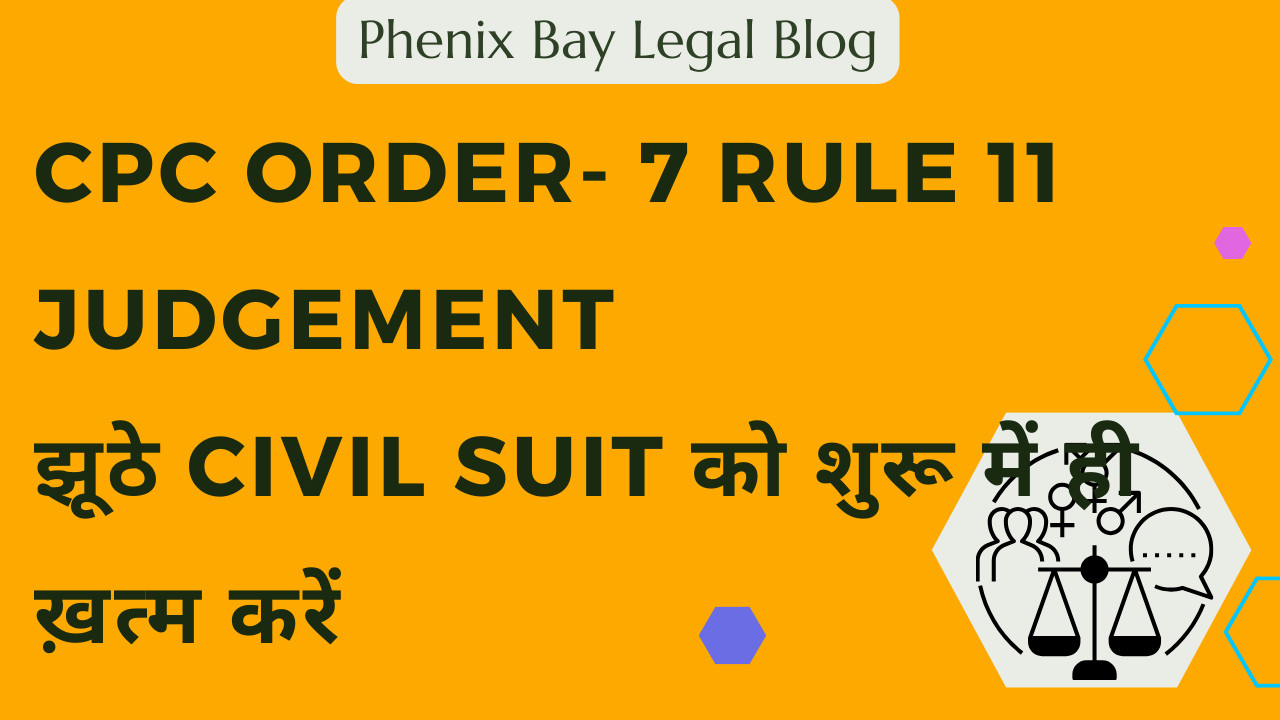
Order 7 Rule 11 of CPC Explanation in Land Mark Judgement
The Sopan Sukhdeo Sable judgment is a landmark ruling that reinforces Order 7 Rule 11 of CPC as a safeguard against frivolous and legally untenable claims. It highlights the importance of examining only the plaint’s contents to decide whether a suit should be dismissed at the threshold.

CPC Order- Order 14 to 20 Explanation IMPORTANT CASE LAWS +MCQ’S for Judiciary Exam Preparation
CPC Order- Order 14 to 20 Explanation IMPORTANT CASE LAWS +MCQ’S for Judiciary Exam Preparation
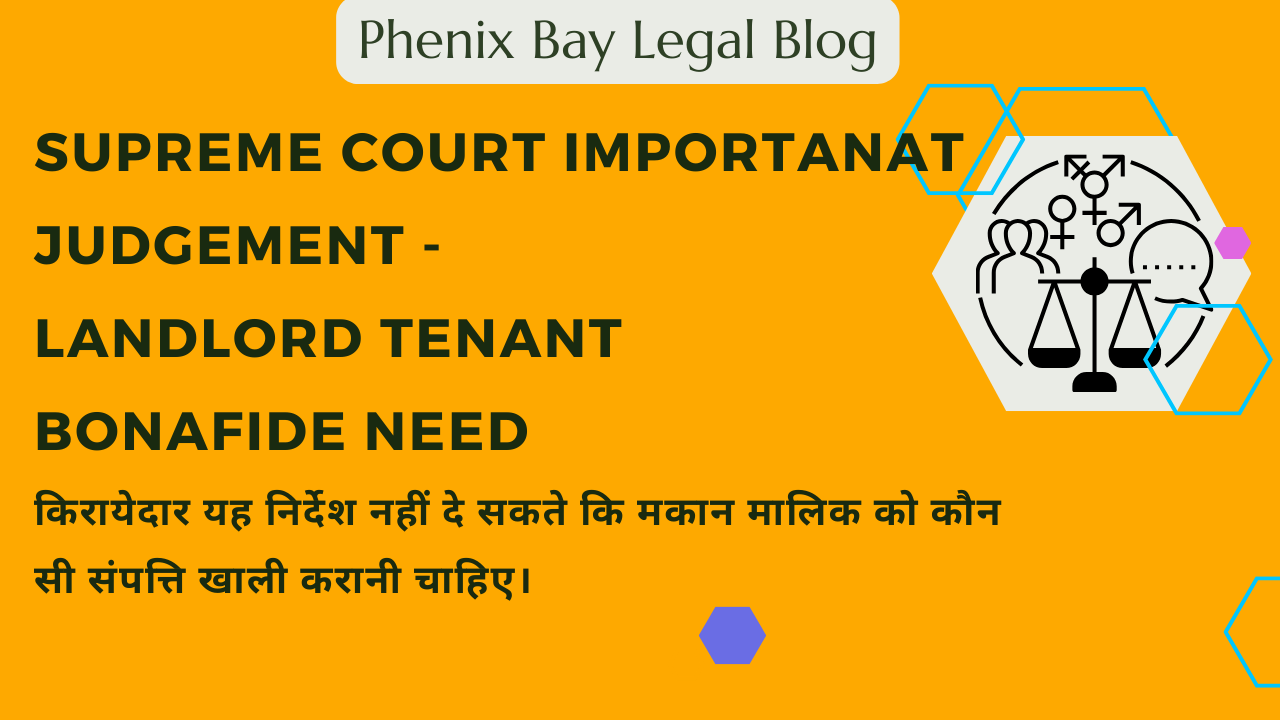
Supreme Court ImportanatJudgement - Landlord Tenant Bonafide need
This case involves a dispute over eviction of a tenant based on the bona fide need of the landlord. The Supreme Court ruled in favor of the landlord, reversing the High Court's decision. Below is a detailed breakdown of the judgment with relevant legal principles, precedents, and reasoning.
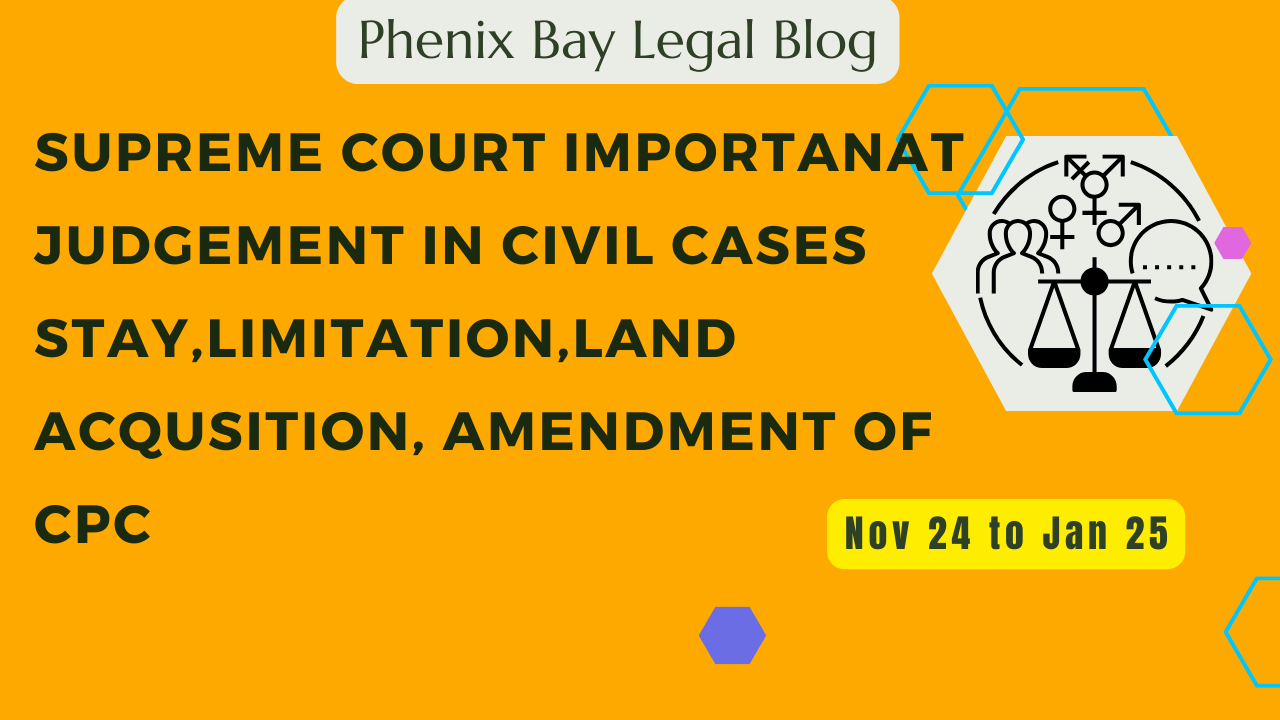
Important Civil Cases Judgement from Supreme Court - November 24 to January 2025
Supreme Court Importanat Judgement in Civil Cases related to Stay,Limitation,Land Acqusition, Amendment of Civil Procedure Code